 TOCOPILLA, Chile - Strong aftershocks from a powerful earthquake hit northern Chile on Thursday as the government erected a working military hospital and promised hundreds of other portable dwellings for 15,000 left homeless by the quake.Government and army workers scrambled to distribute tons of food, water and medicine after the 7.7 magnitude quake struck near the desert village of Quillagua in the foothills of the Andes on Wednesday, killing at least two people and injuring more than 150.Major aftershocks shook the region Thursday, including one of magnitude 6.2 and another of magnitude 6.8, the U.S. Geological Survey said. There were no immediate reports of further damage or injuries.The earthquake destroyed or damaged 4,000 houses and the local hospital, blocking roads, crushing cars and knocking out power across northern Chile, officials said.This port city of 27,000 and the nearby mining town of Maria Elena were the hardest hit, and presidential spokesman Ricardo Lagos Weber said both would be declared disaster areas to expedite aid delivery.Four Cabinet ministers were in the area coordinating recovery and aid efforts. President Michelle Bachelet also flew there Thursday morning.Housing Minister Patricia Poblete said many structures cannot be saved, and firefighters and other workers began demolishing the most severely damaged homes. Dr. Cristian Castillo told The Associated Press "80 percent of our hospital is useless."Two women were killed in Tocopilla, 25 miles from the epicenter, when their houses collapsed, authorities said. Hospital director Juan Urrutia said at least 117 people were treated there for injuries or panic.In tiny Quillagua, with a population of around 100, one person suffered minor injuries and 15 houses were damaged.Electricity was restored in large areas of Tocopilla. Army trucks were distributing water to residents as supply was still cut off in most of the city.In Maria Elena, 1,200 homes were damaged-or 70 percent of the city's total, authorities said. Residents were still without running water and electricity late Wednesday.Lagos Weber said about 170 people were taken to hospitals across the region, but that many of the injuries were not serious. About 10 road workers who had been trapped near Tocopilla when a section of a tunnel they were repairing collapsed were all rescued in good condition Thursday.Hundreds of residents slept in cars or tents in front of their houses. Schools were being used as shelters for those left homeless by the quake.But officials said many are refusing to go to shelters, fearing their homes will be looted if left unattended."We slept in the car, because we have to care for whatever the quake didn't destroy," resident Luis Porcel told the AP.Chile's largest copper mines are in the quake area, and production was halted as electric power was cut for several hours Wednesday before being restored. The nation is the world's largest copper producer.At a badly damaged restaurant Wednesday night, a dozen men drank beer by candlelight."What else can I do? I lost everything. So I'll just have a few drinks," said Samuel Araya, a 57-year-old miner in this town of 7,000 people.Blanca Pizarro said she took refuge under her kitchen table when the quake struck and seconds later the roof collapsed on the table. "I'm alive by a miracle," she said.The quake struck around midday Wednesday 780 miles north of the capital, Santiago, and was followed by several aftershocks, according to the U.S. Geological Survey.It was so strong it shook Santiago and was felt on the other side of the continent in Sao Paulo, Brazil-1,400 miles to the east."It was incredible. I thought my last day had come when I saw the mountain shaking under a large cloud of dust," said Maria Ines Palete, a resident of Quillagua.The quake occurred in one of the most seismically active regions in the world, where the Nazca tectonic plate is shoving itself beneath the South American plate.A 1939 quake in Chile killed 28,000 people and in 1960, a magnitude-9.5 quake-the strongest recorded in the 20th century-killed 5,700 people. On June 13, 2005, a magnitude-7.8 quake near Tarapaca in northern Chile killed 11 people and left thousands homeless.
TOCOPILLA, Chile - Strong aftershocks from a powerful earthquake hit northern Chile on Thursday as the government erected a working military hospital and promised hundreds of other portable dwellings for 15,000 left homeless by the quake.Government and army workers scrambled to distribute tons of food, water and medicine after the 7.7 magnitude quake struck near the desert village of Quillagua in the foothills of the Andes on Wednesday, killing at least two people and injuring more than 150.Major aftershocks shook the region Thursday, including one of magnitude 6.2 and another of magnitude 6.8, the U.S. Geological Survey said. There were no immediate reports of further damage or injuries.The earthquake destroyed or damaged 4,000 houses and the local hospital, blocking roads, crushing cars and knocking out power across northern Chile, officials said.This port city of 27,000 and the nearby mining town of Maria Elena were the hardest hit, and presidential spokesman Ricardo Lagos Weber said both would be declared disaster areas to expedite aid delivery.Four Cabinet ministers were in the area coordinating recovery and aid efforts. President Michelle Bachelet also flew there Thursday morning.Housing Minister Patricia Poblete said many structures cannot be saved, and firefighters and other workers began demolishing the most severely damaged homes. Dr. Cristian Castillo told The Associated Press "80 percent of our hospital is useless."Two women were killed in Tocopilla, 25 miles from the epicenter, when their houses collapsed, authorities said. Hospital director Juan Urrutia said at least 117 people were treated there for injuries or panic.In tiny Quillagua, with a population of around 100, one person suffered minor injuries and 15 houses were damaged.Electricity was restored in large areas of Tocopilla. Army trucks were distributing water to residents as supply was still cut off in most of the city.In Maria Elena, 1,200 homes were damaged-or 70 percent of the city's total, authorities said. Residents were still without running water and electricity late Wednesday.Lagos Weber said about 170 people were taken to hospitals across the region, but that many of the injuries were not serious. About 10 road workers who had been trapped near Tocopilla when a section of a tunnel they were repairing collapsed were all rescued in good condition Thursday.Hundreds of residents slept in cars or tents in front of their houses. Schools were being used as shelters for those left homeless by the quake.But officials said many are refusing to go to shelters, fearing their homes will be looted if left unattended."We slept in the car, because we have to care for whatever the quake didn't destroy," resident Luis Porcel told the AP.Chile's largest copper mines are in the quake area, and production was halted as electric power was cut for several hours Wednesday before being restored. The nation is the world's largest copper producer.At a badly damaged restaurant Wednesday night, a dozen men drank beer by candlelight."What else can I do? I lost everything. So I'll just have a few drinks," said Samuel Araya, a 57-year-old miner in this town of 7,000 people.Blanca Pizarro said she took refuge under her kitchen table when the quake struck and seconds later the roof collapsed on the table. "I'm alive by a miracle," she said.The quake struck around midday Wednesday 780 miles north of the capital, Santiago, and was followed by several aftershocks, according to the U.S. Geological Survey.It was so strong it shook Santiago and was felt on the other side of the continent in Sao Paulo, Brazil-1,400 miles to the east."It was incredible. I thought my last day had come when I saw the mountain shaking under a large cloud of dust," said Maria Ines Palete, a resident of Quillagua.The quake occurred in one of the most seismically active regions in the world, where the Nazca tectonic plate is shoving itself beneath the South American plate.A 1939 quake in Chile killed 28,000 people and in 1960, a magnitude-9.5 quake-the strongest recorded in the 20th century-killed 5,700 people. On June 13, 2005, a magnitude-7.8 quake near Tarapaca in northern Chile killed 11 people and left thousands homeless.As in the days of Noah....
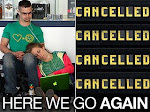
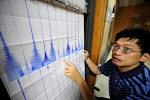
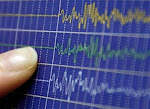
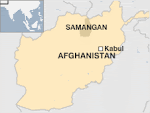







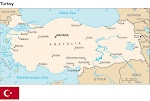
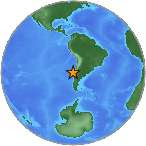




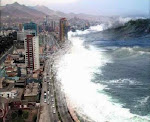

.jpg)

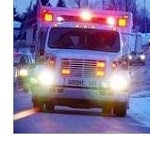
.bmp)
No comments:
Post a Comment